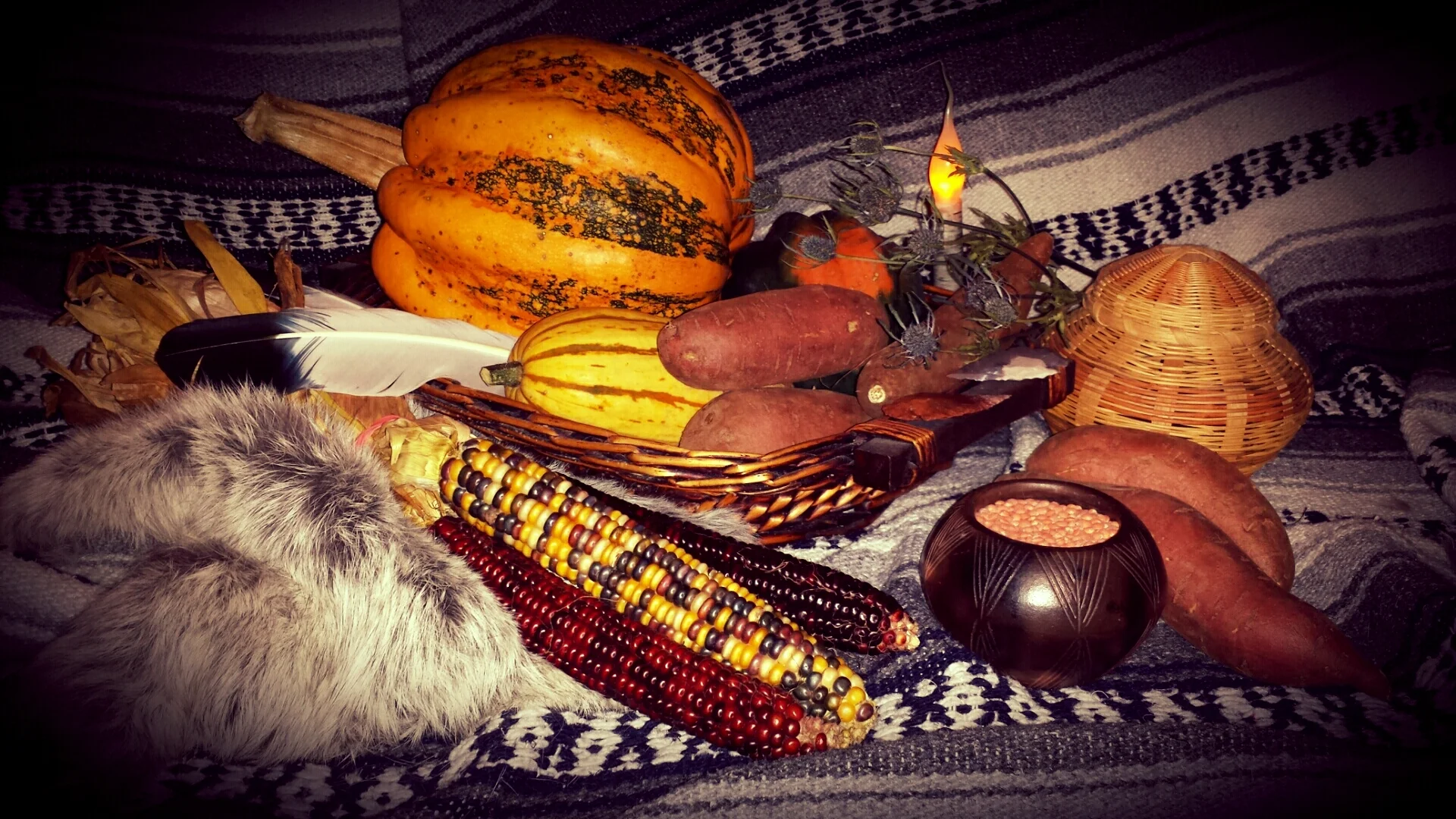In a couple of days, many American families and friends will gather together to share in a feast – the feast of all feasts – the Thanksgiving Day feast. But what are we really celebrating? Why do we have a national holiday of giving thanks? Where did this holiday really come from?
If you study history, no matter the continent or the time period, the pattern of an invading people adapting the beliefs and practices of their captives is constantly repeated. Our three major holidays – Easter, Thanksgiving, and Christmas all started out as something very different and were celebrations of an indigenous people – before the invaders got a hold of them.
Long before the first English explorers even reached the North American continent, Thanksgiving was a day or season deeply rooted in Native American culture. It was a time to feast and celebrate and give thanks to the creator and Mother Earth for a bountiful harvest, health, and safety. But how did this Native American tradition become a part of American culture?
The most well-known explanation for the origin of the national Thanksgiving holiday is the harvest feast between the pilgrims of Plymouth Rock and the Wampanoag natives in 1621. We’ve been taught that the pilgrims invited the natives to share in their first bountiful harvest after the Wampanoag had taught them earlier in the year how to farm, fish, and hunt. The Wampanoag were never invited to this feast. The Wampanoag were only at this gathering because they heard gunfire from the settlement and thought the settlers were under attack, so they raced to offer them aid (at the time, the settlers had not yet betrayed the natives and they lived in relative peace). When the Wampanoag arrived, the pilgrims didn’t have enough food to share, so the Wampanoag went on a hunting trip, and returned with four deer to offer as a gift to the English settlers. The feast lasted for three days, but the natives were not invited, nor were they offered any of the food they helped the settlers grow/obtain. The Wampanoag procured their own food and shared it with the settlers.
Now, the Plymouth Rock story may be the one we’re told is the true origin of the holiday, but many historians and indigenous experts on the subject trace the holiday’s origin to a much darker day of “thanksgiving”. The first official record of a “declared day of thanksgiving” was in the year 1637, when Governor Winthrop of the Massachusetts Bay Colony called for a celebration of thanksgiving and feasting. You see, the colony’s men had just returned safely from what is now Mystic, Connecticut, where they had gone to participate in the massacre of over 700 Pequot men, women and children. Governor Winthrop decided it was appropriate to mark the occasion of the slaughter of over 700 innocent natives with a feast to “give thanks” for their great “victory”. The Thanksgiving celebration became an annual occurrence to mark the anniversary of this massacre.
By the year 1777, all thirteen of the first United States colonies held Thanksgiving celebrations. In 1789, President George Washington declared November 26th a “National Day of Thanksgiving”, and on October 3rd, 1863, President Abraham Lincoln made it official with a “Thanksgiving Proclamation”, declaring Thanksgiving a national holiday.
So, while it’s important to give thanks for the blessings and the people we have in our lives, its equally important to know and teach the truth. This year, as you sit to feast with your loved ones, please do not propagate the lies of this holiday. Know the truth, teach the truth, and learn from it. When the Puritans invaded the North American continent, they rapped, pillaged, and murdered the Native American people. They burned down their villages, and drove them off of their lands. Mainstream culture and history books would like you to believe this didn’t happen, but it did.
The tradition of the American Thanksgiving is based off of the celebration of the massacre of hundreds of Native people, and marked the beginning of the genocide of the indigenous people of this land that continues even to this day. Supporting the lies of the origins of this holiday shows support for the invasion and slaughter of the native people and rightful owners of the land you call home. So, please hold this day in reverence, in remembrance of the great injustice done to the indigenous people of this land.

